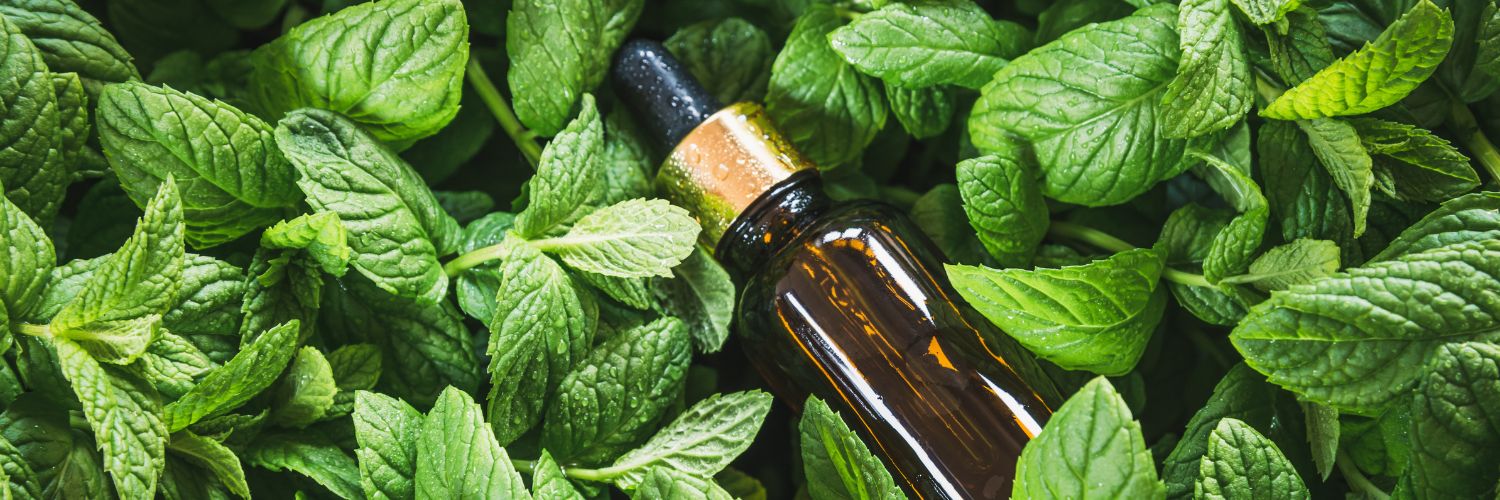Updated on May 22nd, 2025
"The brisk air enveloped me. I scanned the horizon, yearning for the day’s dawn. Stars, light years away, were my only companions. Sudden waves of violent wind lapped at my face and I turned away. In turning, I heard it. Miles away, my pious chocolate Labrador pulled at his leash, bound only by the strength of his leather collar. I could sense his hunger to find me. My pant legs, cloaked with wet earth. My muck boots, left to become part of the brown rich dirt in which they lay. He knew I needed help. I closed my eyes and could see his pulsating pull at the collar and hear his ceaseless barking that would wake the neighbors and bring me home. I lay on the cold thick earth waiting, listening to my own heartbeat and feeling the rhythmic throb of my fractured ankle."
I read the journal entry above and remembered that glorious spring evening when I had left my home, on foot, in search of wild allium plants, particularly the giant variation. While carefully maneuvering the rocky terrain on which I was walking, my foot had lodged between two seemingly small rather pleasant-looking rocks. When I was finally able to pull it free, I found that my ankle was swelling, potentially fractured and no longer able to assist me on my journey.
After hearing the effervescent barks of my lab, my heart rate had slowed. Less blood was pumped to my brain. The world went very dark. Then, wet, slobbery kisses woke me. I heard the quiet whisper of voices. The sun had risen. The violent wind was no longer. I felt bliss. I would somehow make it home this day and swore to carry on my search for wild alliums once my ankle had healed.
I had heard that plants in the allium family repel aphids and wanted to experiment with these varieties myself, especially because they had been used as a natural insecticide throughout indigenous history.
How do plants repel insects?
Certain plants and herbs repel insects through tiny balls of essential oils, or globules, that are naturally produced on plants' leaves.
For example, if you rub the leaf of a lavender plant between your fingers, some of the plant’s essence (or essential oil) will be released and you can smell it on your fingertips.

These oils—stored in tiny globules on the leaves—are released when the foliage is bruised, crushed or moved by wind. This natural release helps ward off insects. High temperatures can also cause the oils to evaporate, dispersing their repellent aroma into the air.
Tip: When dried, these herbs also repel insects.
Plants that repel aphids (primarily on roses)
Do alliums repel bugs?
Yes—alliums are broad-spectrum insect repellents that deter a variety of garden pests both above ground and within the soil. With clusters of small, dramatic florets in purple, blue, pink or yellow, these wildly decorative flowering plants are as striking as they are functional. The genus includes garlic, chives, leeks and shallots, as well as tall, ornamental varieties like Gladiator and Allium giganteum.
These plants emit a natural sulfur-onion aroma that masks the scent of surrounding vegetation, confusing and deterring pests such as aphids, cabbage worms, mosquitoes and slugs. Alliums also protect your soil: underground, their compounds help repel grubs, nematodes and other root-damaging insects, offering dual-action protection for foliage and roots alike.
How to use alliums to repel insects

Plant alliums around roses, vegetables and other vulnerable plants as part of your garden’s natural defense system. These companion plants are especially beneficial for roses, helping deter aphids and other common pests that target blooms and foliage.
For season-long coverage, choose a mix of varieties that bloom at different times. Try planting Gladiator or Allium giganteum for late spring to early summer blooms and intersperse smaller allium species—like Allium moly, Allium neapolitanum or Allium sphaerocephalon—to extend color and pest protection through the season.
The sulfur-like compounds in alliums linger in the surrounding air and soil, helping reduce infestations without chemicals. Their tall, globe-shaped blooms also add ornamental value to garden beds and borders.
Allium plant care
Plant allium bulbs in the fall in well-drained soil. These plants thrive in full sun and are generally winter-hardy in USDA zones 3-8. Space bulbs about a foot apart to allow airflow and encourage large, healthy blooms. Once planted, they require minimal maintenance and will return each year with reliable pest protection and eye-catching color.
Plants that repel mosquitoes (and spiders and flies)
Does basil repel bugs?

Yes—basil repels a variety of bugs, including mosquitoes, flies, moths, flea beetles and cabbage webworms. Its strong scent and essential oils—including citronellal and limonene—overwhelm insect senses, making it a powerful plant-based repellent.
Basil plants are toxic to mosquito larvae and can actually kill them before they hatch. If planted strategically—near standing water—this plant can even deter mosquitoes from laying eggs. This insect-repelling power comes from four key compounds in basil leaves: estragole, citronellal, limonene and nerolidol.
How to use basil to repel insects
To keep mosquitoes, moths and flies from entering your home, pot fresh basil plants and place them near each of your doors. Flies detest the pungent aroma and active compounds released from the leaves.
To protect yourself while gardening, crush a few basil leaves and rub them on your skin—this releases the plant’s natural essential oils and enhances its bug-repelling effect.
Basil plant care
Basil loves constant heat, a lot of sunlight, rich soil, plentiful water and lots of space for its roots to grow, though it can also grow in partial shade, not-so-rich soil and can cope with little water. (These not-ideal conditions will change your basil’s flavor, which isn’t brilliant if you’re planning to make pesto with it, which I hope you are.) Make sure to trim your basil plants back to keep them healthy and bushy, don’t let them sit in wet compost and harvest leaves by pinching them off, rather than snipping them with scissors, as this will promote fresh, new growth.
Does lemongrass repel bugs?
Yes—lemongrass is a highly effective natural insect repellent. Its long, blade-like leaves contain citronella oil, which deters mosquitoes, flies, gnats and certain types of ants. Many gardeners use lemongrass to keep bugs away naturally and lemongrass oil is a popular active ingredient in plant-based bug repellents. Whether planted in your yard or used in spray form, lemongrass overwhelms insect senses and helps mask the human scent that attracts them.

How to use lemongrass to repel insects
Spray diluted lemongrass oil around doors, windows and patios to create a natural barrier. You can also plant lemongrass in gardens or pots near seating areas to deter mosquitoes, gnats and flies.
For a safe DIY bug spray, combine 10–15 drops of lemongrass essential oil with 2 oz of distilled water and a splash of witch hazel or rubbing alcohol. Shake well before each use and spray around outdoor areas. This recipe makes about a 1% dilution—typically safe for light skin contact. For sensitive skin or frequent use, reduce to 5–7 drops per 2 oz (0.5%). Always patch test before applying to skin.
Does citronella repel bugs?
Yes—citronella is one of the best-known plant-based bug repellents. Extracted from plants such as citronella grass and lemongrass, citronella oil is highly effective at deterring mosquitoes, houseflies, gnats and even some biting midges. It's the key ingredient in many natural bug sprays, candles and citronella bug repellents because of its strong, lemony aroma, which insects avoid.
How to use citronella to repel insects

Burn citronella candles on patios, spray citronella oil around door frames or plant citronella grass near windows and seating areas. The plant’s potent oils create an aromatic shield that repels mosquitoes and flies naturally. You can also mix a few drops of citronella essential oil into water or carrier oils for use in homemade bug sprays.
Did you know? Citronella oil is one of the best-known alternatives to synthetic repellents like DEET (which is neurotoxic and has been detected in groundwater) and has been touted as one of the best natural ways to repel mosquitoes and limit their impact.
Both lemongrass and citronella are also effective at keeping spiders at bay, thanks to the citronella oil found in their leaves. This oil is rich in acids that give the plants their distinct citrus scent—a scent spiders detest. For maximum spider-warding results, plant it near your window panes, your balcony or wherever spiders and their webbing frequent your home.
Lemongrass & citronella grass plant care
Lemongrass and citronella grass are hardy as perennials only in South Florida (USDA Plant Hardiness Zone 10), but can be grown as annuals in other regions or kept in pots and brought indoors during cooler months. If planting outdoors, give them plenty of space—citronella grass in particular can grow quite large—and choose a spot with filtered sunlight. Water both plants frequently. These grassy herbs make excellent mosquito-filtering screens and have a bright, refreshing aroma.
Please note: The leaves of both plants are thin and sharp, so handle them with care. To avoid minor skin cuts, consider wearing gloves when trimming or harvesting.
Plants that repel flies (and mosquitoes and spiders)
Does lavender repel bugs?

Yes—lavender is one of the most effective natural insect-repelling plants, widely valued for its ability to deter a broad range of pests—including flies, moths, mosquitoes, beetles, ticks, fleas and even aphids. The lavender plant repels insects by producing high levels of linalool, a naturally occurring compound that overwhelms insects' sensitive olfactory systems—much like synthetic repellents such as DEET, but without the toxic effects.
Due to its higher concentration of linalool, lavender is often considered the most effective of all aromatic herbs at repelling flies.
Did you know? Other plants that contain linalool—like basil, oregano, thyme and mint— also have insect-repelling qualities.
How to use lavender to repel insects
Plant lavender near entryways, windows and patios to create a natural insect barrier. You can also dry its flowers and place sachets in closets or drawers to repel moths and fleas. To protect your skin, gently rub fresh lavender buds between your fingers and dab the oil on pulse points—or dilute lavender essential oil for a natural mosquito spray.
Perhaps you recall the scene from A Good Life when Russell Crowe’s character tosses a small box of dried lavender out the window, not realizing it was keeping scorpions—a type of arachnid—from coming inside. Lavender deters arachnids too.
Bonus: Lavender also deters rabbits from munching on your garden plants.
Lavender plant care
Lavender thrives on hot, dry, rocky or sandy soil and is hardy in zones 5-10. This plant needs full sun. Give your lavender plant room to grow to combat humidity and, if you’re planting in the ground, make sure to add draining to combat soil saturation. Prune lavender straight after flowering to promote new growth.
Other ways to repel pests
If your yard is small or your budget doesn’t allow for a wide variety of insect-repelling plants, consider using a mechanical pest control solution like Dust to Dust Plant-Powered Insect Powder. Fill the Insect Buster with Dust to Dust and disperse a thin, even layer around the perimeter of your yard, garden beds or patio. This powerful powder works by dehydrating insects through mechanical action—without relying on harmful chemicals.

To apply effectively, use the shake-and-squeeze method and be sure to treat areas under your porch and along foundation lines. For tight or hard-to-reach crawl spaces, attach the Insect Buster’s extension rod to spray deeper into confined areas.
Dust to Dust is effective against a wide range of pests, including ants, roaches, fleas, earwigs, mites, silverfish, bed bugs, crickets, pill bugs and more. It is powered by amorphous silica and essential oils, offering long-lasting protection that is safe* for people and pets *when used as directed.
For enhanced outdoor defense, pair it with Six Feet Under: Barricade, a liquid barrier spray that can be applied around doorframes, windowsills and baseboards to repel and kill over 50 types of insects on contact—and prevent future infestations for up to 90 days.
Some of the best plants to repel mosquitoes, flies and aphids include lavender, basil, lemongrass, citronella grass and alliums. These insect-repelling plants are beautiful additions to your garden and reduce the need for chemical sprays. They support a more natural, sustainable approach to pest control.
What insect-repelling plants have worked for you?
Have you tried planting lavender, basil, citronella or other insect-repelling plants around your home? What’s worked best for keeping bugs at bay in your garden or outdoor space? I’d love to hear what’s thriving in your yard—and which plants have helped you reduce the need for chemical sprays. Your insights could inspire other readers on their own pest-free, plant-powered journey.
If you have a recommendation or story to share, please contact our customer experience team—they’d be delighted to pass it along.
I am now up and walking around; my troubled ankle is completely healed. But I still enjoy a good recommendation from a reader.

















